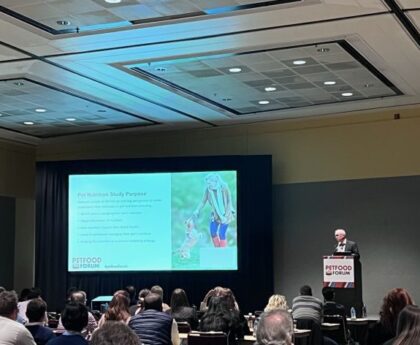
The nutritional requirements of older cats are different from those of younger cats. Cat food they have consumed throughout their life may have an impact on their health later in life.
The Flintstones had a hard time keeping their cat outside at night. But that mentality is almost as rare as the smilodonthat lived with Fred and Wilma. The lifespan of pet cats has increased as cats spend more time indoors, and eat less wildlife in their backyard. The nutritional requirements of older cats are different from those of younger felines. Their diets may also have affected their health.
Emma Bermingham Ph.D. said that the diet of cats may have an impact on how they age. She made this statement during her presentation to Petfood Forum in Kansas City Missouri, Missouri, on May 2. This needs to be taken into account and future research in regards to aging pets.
She said that a study from 2022 found that between 20% and 40% of cats were now considered old. This means they are older than 11 years. Inflammaging is a term used to describe the increasing number of problems associated with ageing.
She said that the older a cat is, the worse the disease they have.
The Bermingham research team studied the same cats for 11 years in order to determine the long-term health effects of commercial diets. One group of cats consumed canned food, while the other ate extruded cat kibble.
During the majority of the study, cats’ body weights were similar. Only seasonal fluctuations occurred. At eight years, the bodyweights of cats began to diverge. The cats eating dry kibble started to weigh more than the cats eating kibble. Eight years old, the cats on canned diets started losing weight. The ones eating dry food stopped losing the weight that they gained during the winter.
She said that around eight years old, cats’ health is affected by metabolic or physiological changes.
Bermingham explained that the ability of cats to digest fat increased with age, starting at birth, and then declined after age six. The digestibility of the fat in extruded foods declined less. Both age and diet affected protein digestibility.
The fecal microbial community of cats fed a canned food retorted remained higher with age. The age-related changes to the gut microbiome were more apparent in cats that ate a dry food. The microbiome of these cats changed in terms of amino acid and Vitamin metabolism.
Bermingham pointed out that the number cats included in the study were relatively few. The team found that cats responded differently to wet versus dry food. Future studies will need to explain why.




